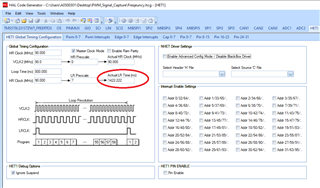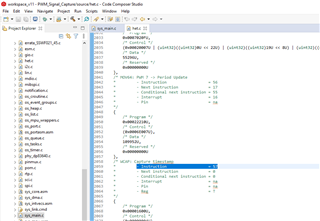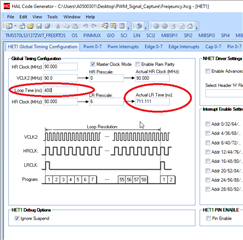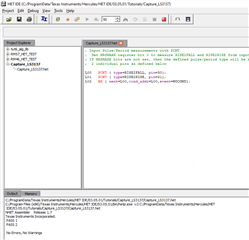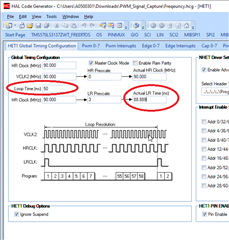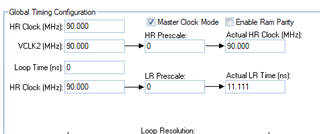Part Number: TMS570LS3137
Other Parts Discussed in Thread: HALCOGEN
Hello Everyone,
I'm using TMS570LS3137 microprocessor for our project.
We have to capture a PWM frequency with TMS570 HET port. We used the Halcogen generated HET library for this. But capGetSignal working incorrectly. We realised it works like this:
Constantly measures values up to certain frequencies like this:
Applied PWM Freq Captured PWM Freq
90kHz 100.4kHz
92kHz 100.4kHz
96kHz 100.4kHz
98kHz 100.4kHz
99kHz 100.4kHz
100kHz 100.4kHz
102kHz 117.187kHz
104kHz 117.187kHz
106kHz 117.187kHz
108kHz 117.187kHz
110kHz 117.187kHz
120kHz 140.652kHz
It seems to output only one frequency over a certain range.
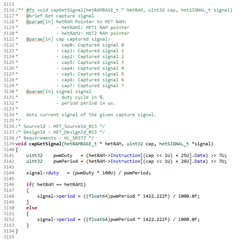
We don't understand why sihft right this period?
We test codes is this:
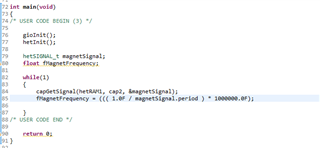
Thanks.


